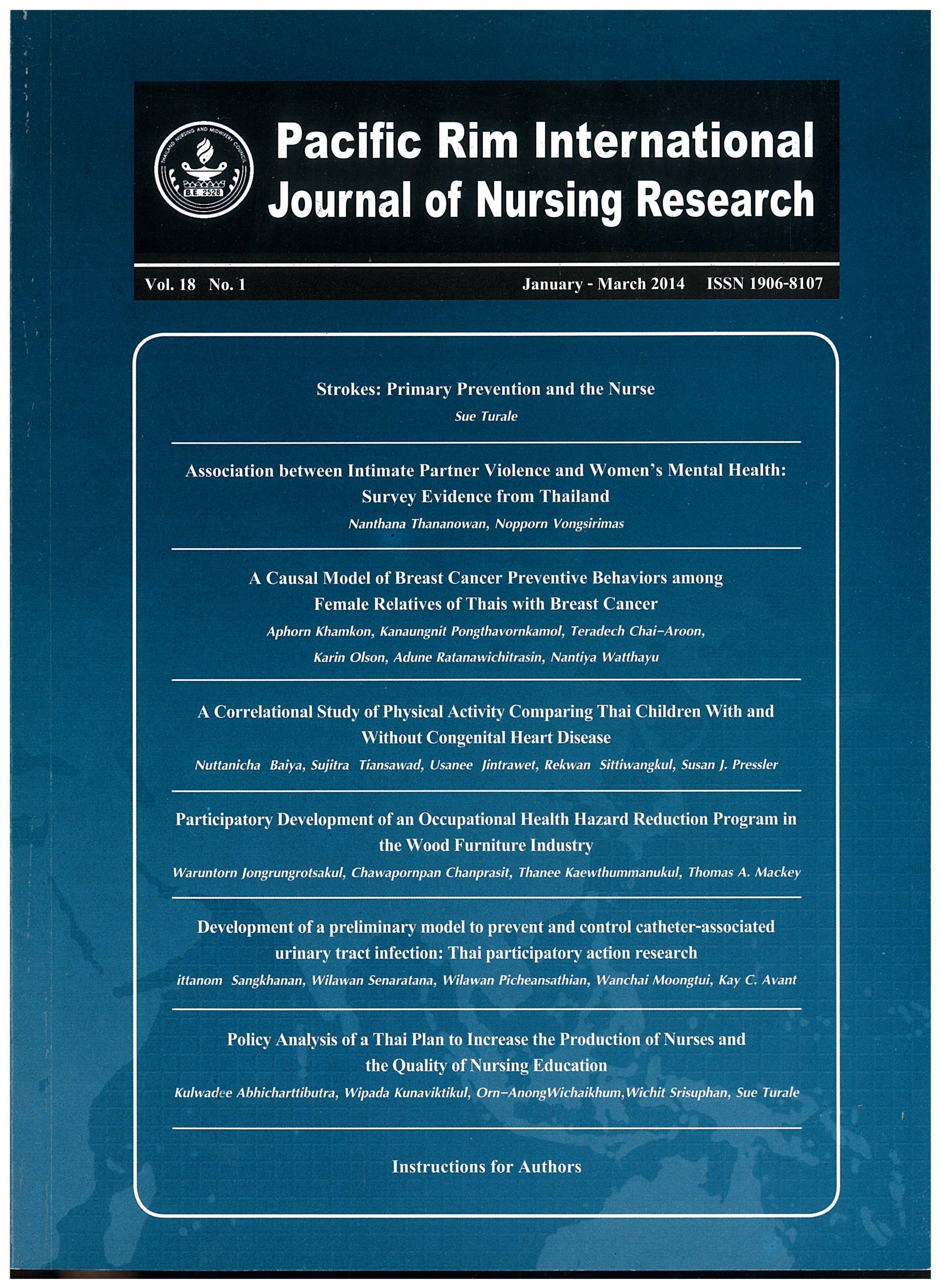Association between Intimate Partner Violence and Women’s Mental Health: Survey Evidence from Thailand
Keywords:
intimate partner violence, abuse, mental health, Thai womenAbstract
There is increasing recognition that mental health issues are a problem affecting women experiencing intimate partner violence. We report part of a larger study that investigated intimate partner violence, health consequences, and coping patterns among 532 Thai women who had gynecological problems. The purposes of this study were to: (1) compare mental health (stress, depression, self-esteem, and social support) among non-abused and abused women, (2) examine the specific types of violence (physical, sexual, and emotional violence) on the mental health of abused women, and (3) identify the influence of specific types of violence on stress, depression, self-esteem, and social support. Data was obtained from seven instruments: the Demographic Characteristics Questionnaire, the Abuse Assessment Screen, the Index of Spouse Abuse, the Stress Test, the Center for Epidemiologic Studies Depression Scale, The Rosenberg’s Self-Esteem Scale, and the Multidimensional Scale of Perceived Social Support. Results revealed that abused women reported significantly higher stress and depression and had lower self-esteem and social support than non-abused women. Women who experienced emotional violence had significantly higher stress and depression but lower self-esteem and social support than those experiencing physical and sexual violence. Only emotional violence had a significant effect on stress. Sexual violence was the strongest predictor of depression, self-esteem, and social support. Physical violence had no effect on mental health.
Our findings emphasize that different types of intimate partner violence are independently associated with women’s mental health. Correlates of these can be useful for nursing professionals in Thailand to help identify women exposed to such violence so as to provide proper care and treatment, including mental health treatment. Thus, examination protocols need to be inclusive of routine assessment for intimate partner violence so that this is part of the standard care of all women with gynecological problems.
Downloads
Published
How to Cite
Issue
Section
License
Copyright: The Pacific Rim International Journal of Nursing Research, Thailand Nursing & Midwifery Council has exclusive rights to publish, reproduce and distribute the manuscript and all contents therein.








.png)



